新概念英语第一册第九课Lesson9
- 格式:pptx
- 大小:261.17 KB
- 文档页数:11
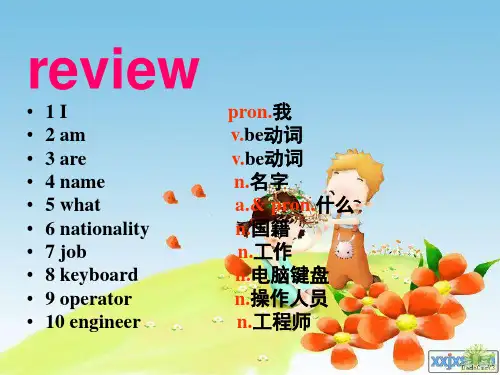
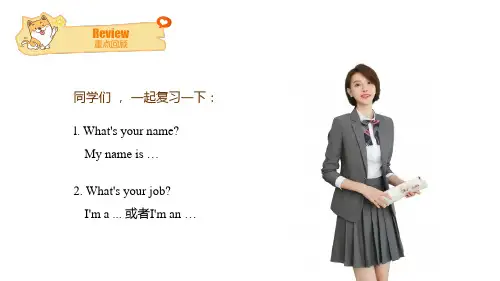
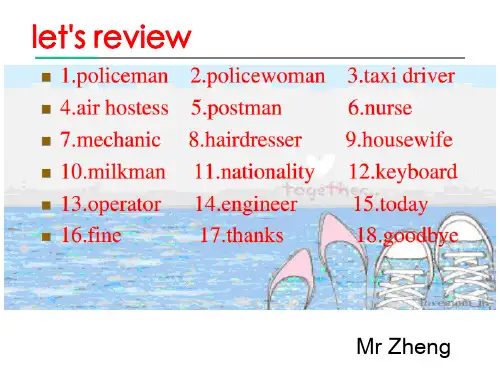
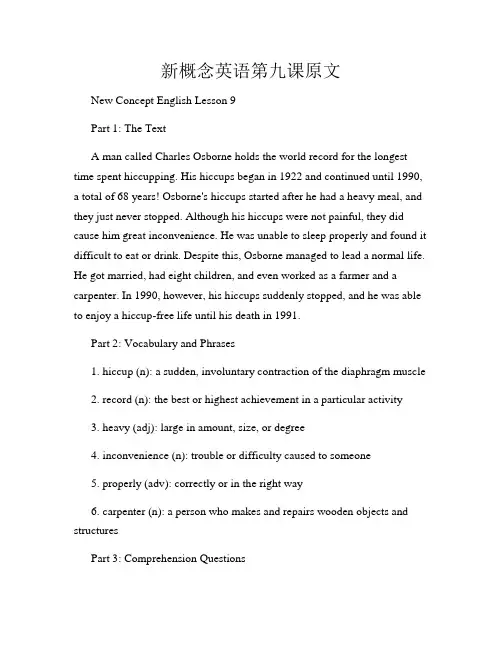
新概念英语第九课原文New Concept English Lesson 9Part 1: The TextA man called Charles Osborne holds the world record for the longest time spent hiccupping. His hiccups began in 1922 and continued until 1990, a total of 68 years! Osborne's hiccups started after he had a heavy meal, and they just never stopped. Although his hiccups were not painful, they did cause him great inconvenience. He was unable to sleep properly and found it difficult to eat or drink. Despite this, Osborne managed to lead a normal life. He got married, had eight children, and even worked as a farmer and a carpenter. In 1990, however, his hiccups suddenly stopped, and he was able to enjoy a hiccup-free life until his death in 1991.Part 2: Vocabulary and Phrases1. hiccup (n): a sudden, involuntary contraction of the diaphragm muscle2. record (n): the best or highest achievement in a particular activity3. heavy (adj): large in amount, size, or degree4. inconvenience (n): trouble or difficulty caused to someone5. properly (adv): correctly or in the right way6. carpenter (n): a person who makes and repairs wooden objects and structuresPart 3: Comprehension Questions1. How long did Charles Osborne's hiccups last?2. What caused Osborne's hiccups?3. How did his hiccups affect his daily life?4. When did Osborne's hiccups finally stop?Part 4: Language Points1. "His hiccups began in 1922 and continued until 1990."- The verb "began" is in the past simple tense, indicating the start of an action in the past.- The verb "continued" is in the past simple tense, indicating the ongoing nature of an action in the past.2. "Although his hiccups were not painful, they did cause him great inconvenience."- The conjunction "although" introduces a contrast between two ideas.- The verb "were" is in the past simple tense, indicating the state of something in the past.- The verb "did cause" is in the past simple tense, indicating the cause and effect relationship between two actions in the past.3. "He was unable to sleep properly and found it difficult to eat or drink."- The verb "was" is in the past simple tense, indicating the state of someone in the past.- The verb "found" is in the past simple tense, indicating the discovery of a difficulty in the past.4. "In 1990, however, his hiccups suddenly stopped, and he was able to enjoy a hiccup-free life until his death in 1991."- The adverb "suddenly" describes the manner in which his hiccups stopped.- The verb "stopped" is in the past simple tense, indicating the end of an action in the past.- The verb "was able to enjoy" is in the past simple tense, indicating the ability to experience something in the past.Part 5: Discussion Questions1. Have you ever experienced hiccups? How did you get rid of them?2. Can you think of any other long-lasting medical conditions that people have experienced?3. How do you think Charles Osborne managed to lead a normal life despite his hiccups?4. Do you know any interesting records or achievements held by individuals?Conclusion:Charles Osborne's 68-year-long hiccups were a remarkable medical phenomenon. Despite the inconvenience they caused, he managed to live afulfilling life. His story serves as a reminder of the resilience of the human spirit in the face of adversity.。
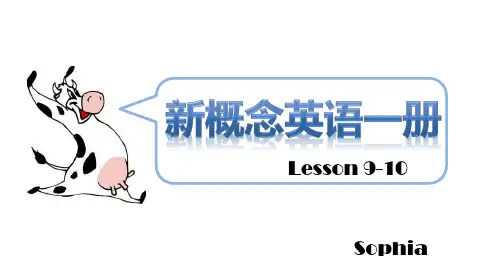
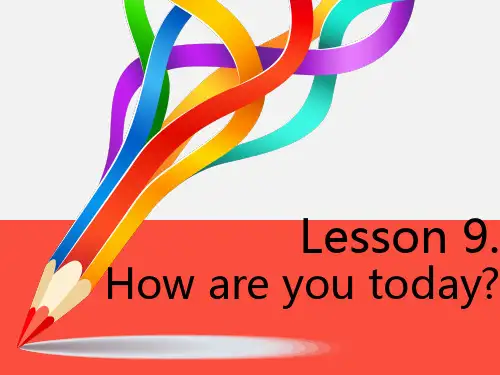
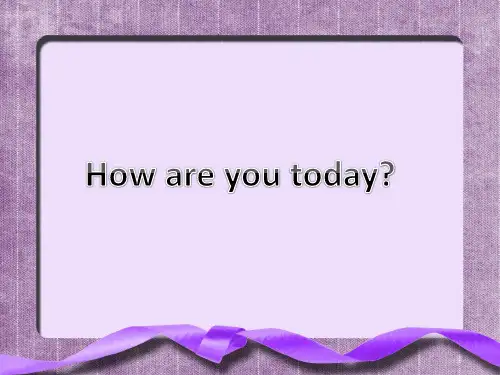
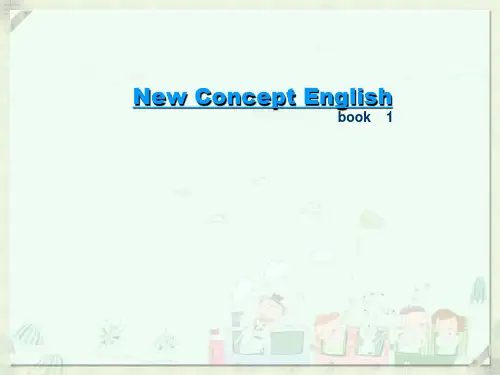
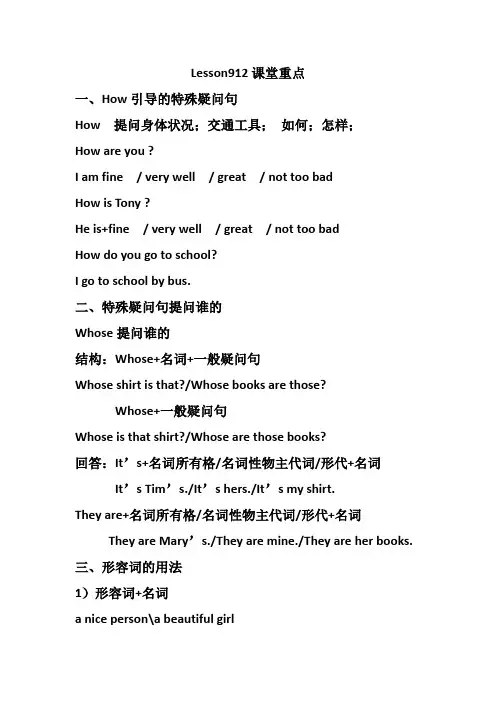
Lesson912课堂重点一、How引导的特殊疑问句How 提问身体状况;交通工具;如何;怎样;How are you ?I am fine / very well / great / not too badHow is Tony ?He is+fine / very well / great / not too badHow do you go to school?I go to school by bus.二、特殊疑问句提问谁的Whose提问谁的结构:Whose+名词+一般疑问句Whose shirt is that?/Whose books are those?Whose+一般疑问句Whose is that shirt?/Whose are those books?回答:It’s+名词所有格/名词性物主代词/形代+名词It’s Tim’s./It’s hers./It’s my shirt.They are+名词所有格/名词性物主代词/形代+名词They are Mary’s./They are mine./They are her books.三、形容词的用法1)形容词+名词a nice person\a beautiful girl2)Be+形容词I am good.It is interesting四、感谢用语thanks 谢谢thank youthank sb感谢某人Thanks a lot非常感谢Thank you very much五、名词所有格(表示所属关系)~的1)名词所有格’s’s表示所有关系归谁所有在谁后面加’s,译为“的”Mary’s玛丽的Your father’s你父亲的以s结尾的复数加’students’学生们的2)A’s and B’s A的和B的,分别所属,两个,谓语动词用复数A and B’s A和B的,共同所属,一个,谓语动词用单数3)“名词1+of+名词2”名词2的名词1A of B译为B的A4)双重所有格有两种形式:①of+名词所有格;Eg:He is a friend of my brother's.②of+名词性物主代词。
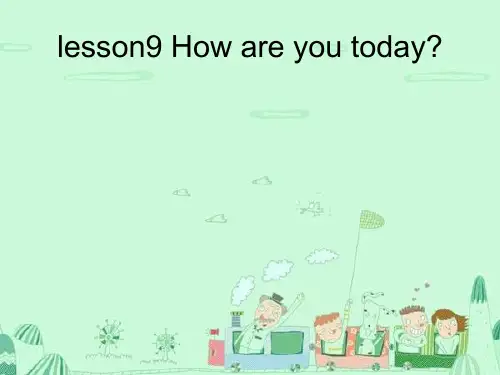
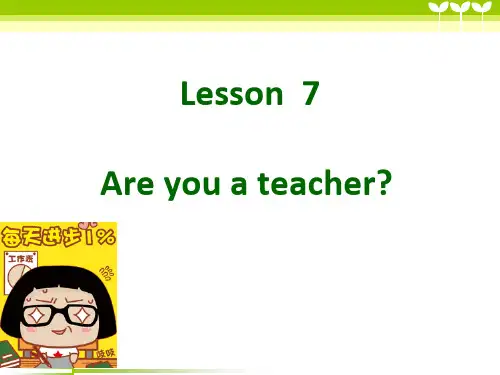
Lesson 9 and Lesson 10一根据汉语提示填空,使句意完整。
(10分)1. (怎样)are you today?2。
I'm very (好)。
3. That man is (胖).4. That woman is (瘦).5。
That (男警察) is tall.6。
That policewoman is (矮).7。
That (机械师) is dirty。
8. Steven is (热的)。
9。
That (空中小姐) is young.10. That hairdresser is (忙碌的).二用所给词的反义词或对应词填空。
(10分)1. That milkman is (young).2. That housewife is (lazy)。
3。
Emma is (hot).4。
That nurse is (dirty)。
5. That policeman is (tall)。
6. The (woman) is fat。
7。
The (airhost) is young.8。
(he) is a mechanic.9。
What is (his) job?10。
I am a new (student).三用所给词的适当形式填空。
(10分)1。
How are you? I’m very (good).2。
The (airhost) is very young。
3。
That (hairdress) is busy。
4。
He is a taxi (drive).5。
He’s fine. (thank).6。
Nice (see) you。
7. Mr. Blake is a (teach).8. What is the (man) job?9. (I) name is Sophie.10。
I am (a) engineer.四选择填空。
(10分)()1. is Tony? He is 。
Lesson1: Excuse me!Excuse me!Yes?Is this your handbag?Pardon?Is this your handbag?Yes, it is.Thank you very much.Lesson 3:Sorry sir。
My coat and my umbrella please. Here is my ticket。
Thank you sir。
Number five。
Here is your umbrella and your coat. This is not my umbrella。
Sorry sir。
Is this your umbrella?No, it isn't。
Is this it?Yes, it is。
Thank you very much。
Lesson 5: Nice to meet you。
Good morning.Good morning,Mr. Blake.This is Miss Sophie Dupont.Sophie is a new student.She is a French。
Sophie, this is Hans.He is German。
Nice to meet you。
And this is Naoko。
She’s Japanese.Nice to meet you。
And this is Chang—woo。
He’s Korean。
(朝鲜人)Nice to meet you.And this is Luming.He’s Chinese。
Nice to meet you.And this is Xiaohui.She’s Chinese, too。
Nice to meet you。
Lesson 7: Are you a teacher? I'm a new student。
My name’s Robert.Nice to meet you。
新概念英语第一册Lesson 1 Excuse me! 对不起!Excuse me!对不起!Yes? 什么事?Is this your handbag? 这是您的手提包吗?Pardon? 对不起,请再说一遍。
Is this your handbag? 这是您的手提包吗?Yes,it is. 是的,是我的。
Thank you very much. 非常感谢!New words and expressions 生词和短语excuse v.原谅handbag n. (女用)手提包me pron.我(宾格) pardon int.原谅,请再说一遍yes adv.是的it pron.它is be 动词现在时第三人称单数thank you 感谢你(们) this pron.这very much 非常地your possessive adjective 你的,你们的Notes on the text 课文注释1.Excuse me.这个短语常用于与陌生人搭话,打断别人的说话或从别人身边挤过。
在课文中,男士为了吸引女士的注意力而用了这个表示客套的短语。
2.Pardon?全句为I beg your pardon. 意思是请求对方把刚才讲过的话重复一遍。
Lesson 3 Sorry, sir. 对不起,先生。
My coat and my umbrella please. 请把我的大衣和伞拿给我。
Here is my ticket. 这是我(寄存东西)的牌子。
Thank you, sir. 谢谢,先生。
Number five. 是5号。
Here's your umbrella and your coat. 这是您的伞和大衣。
This is not my umbrella. 这不是我的伞。
Sorry, Sir. 对不起,先生。
Is this your umbrella? 这把伞是您的吗?No, it isn't. 不,不是!Is this it? 这把是吗?Yes, it is. 是,是这把。